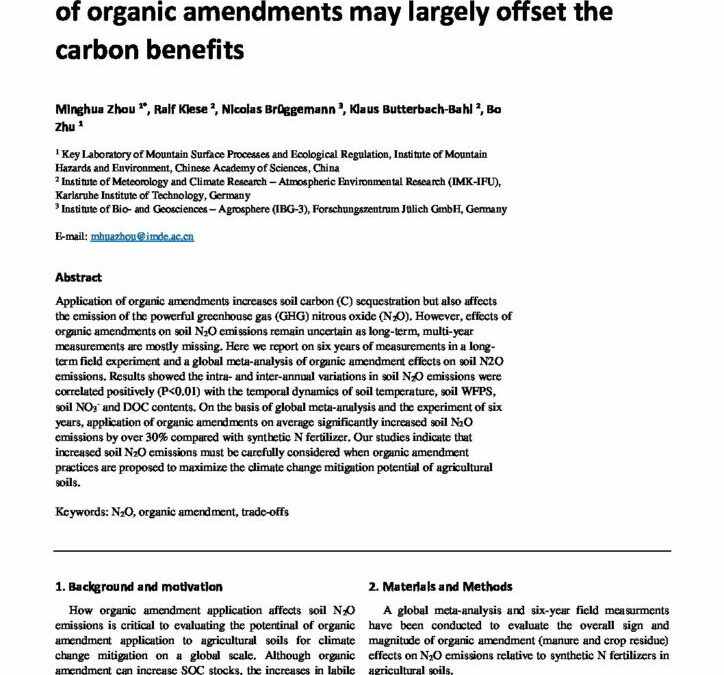Increased nitrous oxide emissions by application of organic amendments

Application of organic amendments increases soil carbon (C) sequestration but also affects the emission of the powerful greenhouse gas (GHG) nitrous oxide (N2O). However, effects of organic amendments on soil N2O emissions remain uncertain as long-term, multi-year measurements are mostly missing.
Here we report on six years of measurements in a longterm field experiment and a global meta-analysis of organic amendment effects on soil N2O emissions. Results showed the intra- and inter-annual variations in soil N2O emissions were correlated positively (P<0.01) with the temporal dynamics of soil temperature, soil WFPS, soil NO3 – and DOC contents. On the basis of global meta-analysis and the experiment of six years, application of organic amendments on average significantly increased soil N2O emissions by over 30% compared with synthetic N fertilizer. Our studies indicate that increased soil N2O emissions must be carefully considered when organic amendment practices are proposed to maximize the climate change mitigation potential of agricultural soils.
